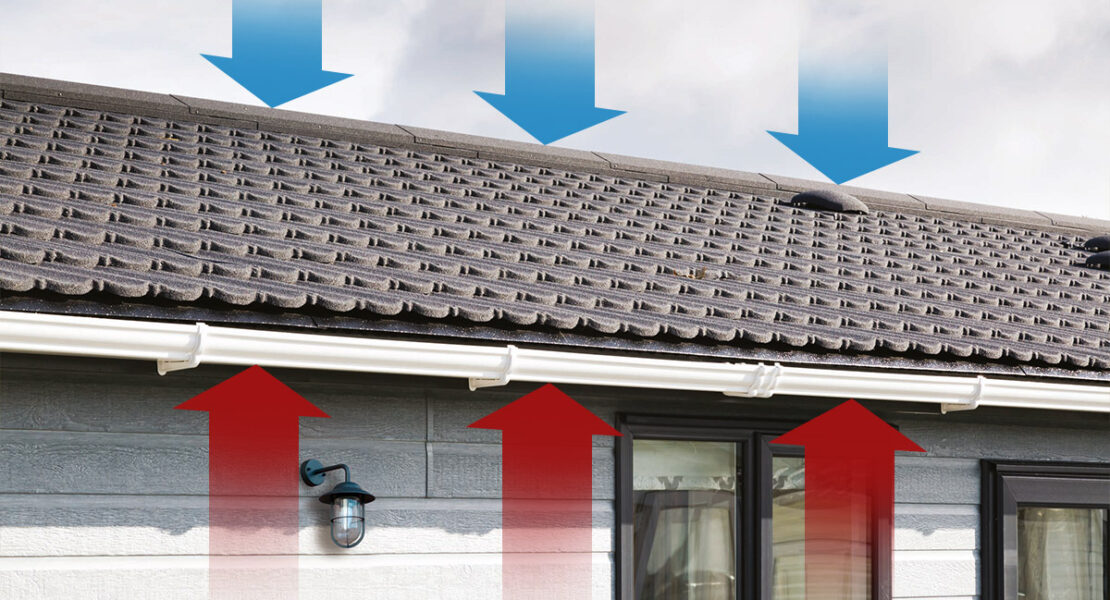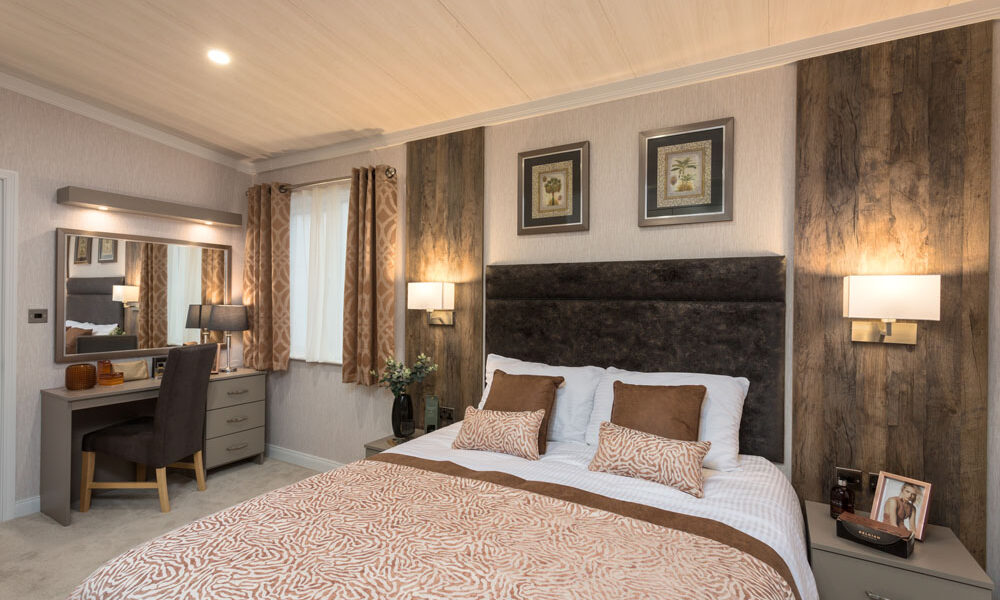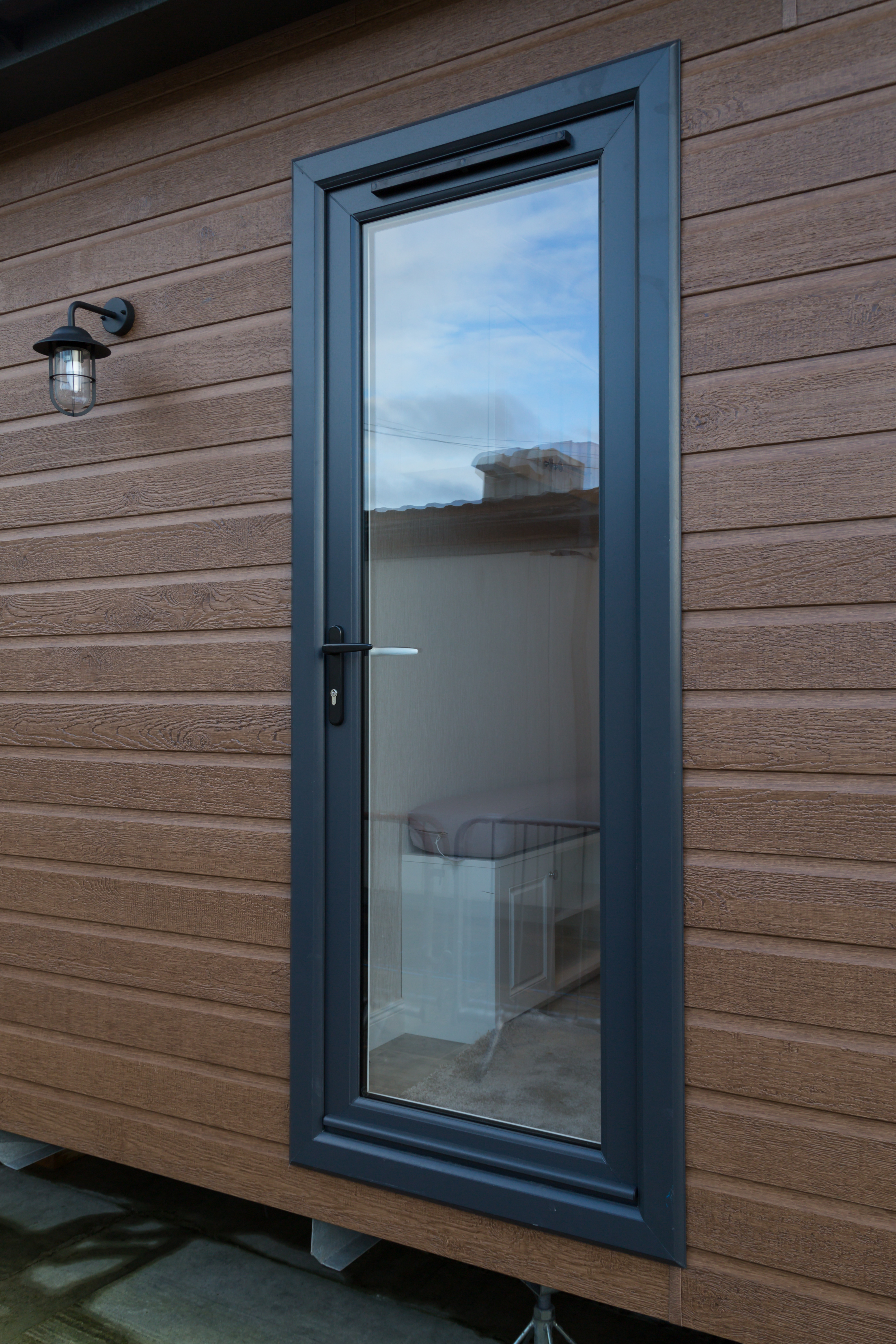-
Residential Specification
What is BS 3632?
BS 3632 Specification for Residential park homes and Residential Lodges is a British Standard introduced by the British Standards Institute, that specifies the minimum requirements for the design, construction, and performance of residential park homes and lodges.
Initially introduced in 1963, BS3632 represents the British Standard against which all our homes can be constructed. This standard, overseen by The British Standards Institution (BSI), is dedicated to fostering best practices and excellence. The objective of BS3632 is to ensure that residential units offer a secure and comfortable place to live.
In 2015, the British Standard underwent a revision to align more closely with conventional housing norms. A primary focus of BS3632:2015 was the enhancement of energy efficiency, contributing to the reduction of the ecological footprint of residential park homes in recent years.
The latest iteration, BS 3632:2023, builds upon the foundational principles of its predecessor. In response to an evolving landscape of sustainability, this revision integrates improvements targeting heat loss through the external structure, ventilation enhancements, and vapour control measures. Additionally, the new standard incorporates enhanced safety features and refined construction guidelines
-
To be approved by the NCC, static home manufacturers must ensure that their residential park homes meet certain quality and safety standards.
The requirements outlined by BS 3632 encompass a comprehensive and technically intricate set of criteria. However, to simplify this, the following highlights some key advantages associated with constructing a residential specification home:
- Increased wall, flooring and roof insulation
- Double glazed windows
- Central heating and improved ventilation systems
- Soundproofed walls
- More rigorous advice and warnings
- Thermostatic controlled hot water supply
Insulation & Soundproofing
Insulation – Enhanced thermal insulation significantly enhances the comfort of our homes. Thermal performance is measured as a U-value and the lower the figure the better. BS3632-2023 has improved on these and our roof, walls, floors and windows all exceed this regulation.. Our team of qualified engineers meticulously calculates U-values to ensure that each home meets or surpasses regulatory requirements across roofs, walls, floors, and windows.
Soundproofing – BS3632-2023 sets higher benchmarks for soundproofing within walls. Our walls are rigorously acoustically tested in a laboratory by qualified professionals to ensure compliance. The result is a high quality wall to make living in one of our homes both quiet and relaxing.


Heating Systems & Vapour Control
Heating Systems – BS3632-2023 mandates the inclusion of heating and hot water systems, precisely tailored to optimise homeowner comfort. We offer a diverse range of heating and hot water options, from LPG combination boilers to all- electric systems, to accommodate various preferences.
Vapour Control – The pursuit of improved energy efficiency has increased the risk of condensation within homes. To address this concern, the new standard incorporates performance criteria aimed at enhancing ventilation and improving indoor air quality.


Enhanced Safety
Enhanced Safety – BS3632-2023 incorporates updates to enhance residential safety. Mandatory installation of graded smoke and heat alarms, along with improvements in means of egress, further underscores our commitment to ensuring homeowner safety.


Windows & Doors
Results in a more regulated indoor temperature.
As a component of our Residential Standard upgrade, Pemberton Homes are equipped with state-of-the-art Low-E, Argon-gas filled double glazed windows and doors.
One of the primary significant benefits of low-E glass is its exceptional insulating capability, greatly enhancing the energy efficiency of your windows. Through the incorporation of a low-emissivity film, low-E glass exhibits superior insulative properties compared to standard uncoated glass.
In addition, Argon gas’s higher viscosity inhibits molecular movement, resulting in reduced heat transfer and heat loss. Moreover, its denser and heavier nature serves as a preventive measure against condensation.
Consequently, these features ensure a considerable improvement in thermal performance, affording you a notably cooler environment in the summer and a warmer environment during the challenging winter months experienced in the British climate.
Please note that in some single units, the option to have windows in lieu of doors to the front elevation can be restricted by the requirements of BS3632. Our Sales Managers are more than happy to discuss the options available to you.


Pemberton FAQs
Your questions answered...
-
What is the residential upgrade?
Pemberton are the only manufacturer to offer their customers the opportunity to upgrade any model in the range to residential specification BS3632:2023, thus enabling them to live in their desired home all year round. This standard defined by the British Standards Institute, was last updated in September 2023 (BS3632:2023), defines a far superior building standard relative to the EN1647 standard applied to holiday homes on holiday parks.
-
What type heating is used?
Pemberton uses Morco GB24 Condensing boiler A-rated heating.
-
What type of insulation is used in the floor?
120mm of insulation.
-
What type of insulation is used in the roof?
250mm Superglass Fibreglass.
-
What type of insulation is used in the wall?
125mm Thick Insulated Wall.
-
What type of lighting is used?
LED lighting.
-
What type of pipe lagging is used under the caravan?
Armcell superior pipe insulation on all pipe work.
-
What type of windows are used?
Double glazed, argon filled U-PVC with Low-E glass (U=value 1.4).




